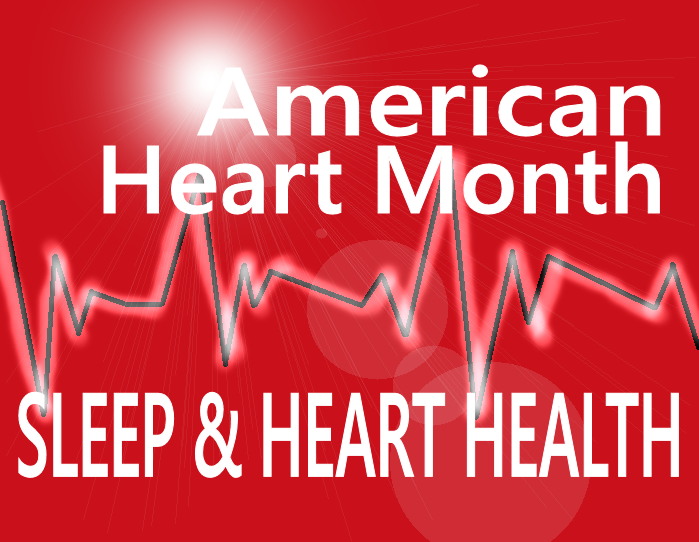Mattresses
SHOP STANDARD SIZES
SHOP STANDARD SIZES
SHOP BY TYPE
SHOP BY BRAND
RV Mattresses
Adjustable Beds
Shop By Brand
Shop By Size
Oversized Beds
 American Heart Month: The Sleep – Heart Health Connection
American Heart Month: The Sleep – Heart Health Connection
You may already be aware that February is American Heart Month. What you might not realize is the connection between sleep and heart health. This should not be too surprising, considering all that your body does as you sleep.
There are many ways in which sleep affects your heart health. When you get enough sleep you are less likely to be impulsive when it comes to food choices. The food choices you make can dramatically impact your heart health. Reducing sodium and added sugars are a good start but there are several ways you can change your diet for improved heart heath. We encourage you to visit the American Heart Association’s official website to learn about healthy changes you can make. This website provides a plethora of helpful information for those wanting to make heart healthy changes. They even have heart healthy recipes!
Another way that sleep can influence your heart health is through functions that are performed as you sleep. According to the National Sleep Foundation when you don’t get sufficient sleep, there are effects in biological processes; inflammation, glucose metabolism and blood pressure. Inflammation is a cause of disease in general so it is important to eat foods that are anti-inflammatory and get enough quality sleep. Sleep Apnea has also been linked to cardiovascular issues since sleep is disrupted. So if you suffer from sleep apnea, it is especially important for you to be aware of your risk.
There are so many reasons that people don’t get the sleep they need. Sometimes distractions keep us up at night; work, television, etc. Other times, our sleep is disrupted by lights and sounds. There are even times when getting comfortable is an issue. Rest Right Mattress has some suggestions for creating a bedroom environment that encourages quality sleep. Quality and quantity are important for your health and wellness. Your body needs to get through the stages of sleep!
In the United States one person dies every 43 seconds from cardiovascular diseases or stroke. Learn as much as you can about prevention and take action to improve your heart health. While genetics play a part, lifestyle changes often can make a difference. Making good food choices, getting enough quality sleep, and reaching recommended activity/exercise levels may help.
Because American Heart Month is February, there are many places doing low or no cost cholesterol screenings. If you don’t know where you stand, please take advantage of these opportunities! Check out your local grocery store clinic or YMCA to see if they are offering something. Knowing your numbers is the first step. Many times people don’t start taking heart health seriously until they realize there is a problem. Better yet, visit the American Heart Association’s website and review its recommendations. No matter what your numbers are, you can benefit from making heart healthy lifestyle changes
© 2025 Rest Right Mattress. All Rights Reserved.

